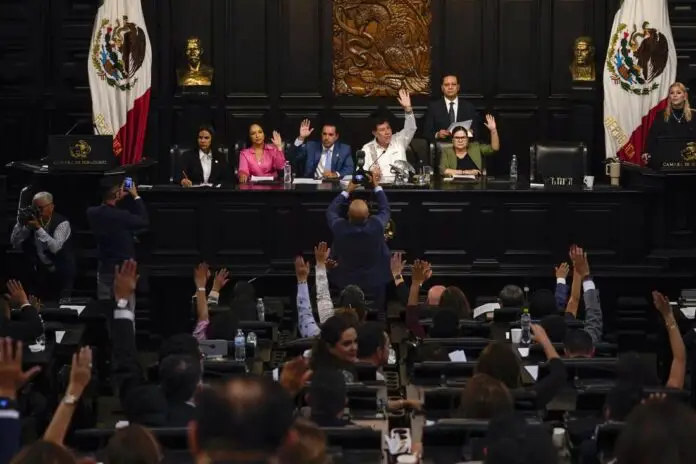The proposed constitutional reforms in Mexico aim to remake the federal judiciary by shifting from appointed judges to elected ones. The government and president-elect, Claudia Sheinbaum, accuse the courts of corruption and argue that the changes are essential to ensure the judiciary is answerable to the people rather than big business or organized crime.
A key proposal under consideration would change how federal judges are selected. Instead of working their way up through the judiciary, they would be elected by popular vote, similar to presidents and lawmakers. This plan also includes reforms such as capping judicial salaries at the level of the president’s salary.
The proposed changes have led to protests by judges and judicial staff who claim they will undermine the independence of the judiciary. Federal courts have issued three injunctions in an attempt to halt the reforms.
However, proponents argue that the current system is corrupt and that electing judges would ensure they are accountable to the public. They point out that Mexico’s current president-elect has a supermajority in Congress, allowing them to amend the Constitution without opposition.
Critics of the proposed changes suggest that the Bolivian model, which also elects judges by popular vote, has led to politicization and corruption in its judiciary. They argue that this could have the same effect in Mexico, eroding public trust in the courts.
Despite these concerns, constitutional lawyer Juan Carlos González Cancino believes the reforms are necessary to address deep-seated corruption within the judiciary. He claims that judges often take bribes or make decisions based on phone calls rather than the law. The proposed changes would dismantle this power structure and ensure the judiciary serves the people’s will as reflected in the Constitution.
Ultimately, the outcome of these proposed reforms depends on the Mexican people’s acceptance and how effectively they implement the new system to address corruption and promote accountability within the judiciary.
Source: NPR.org






